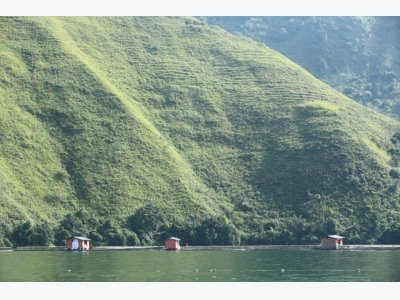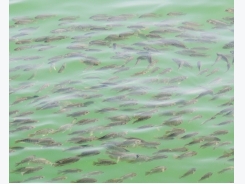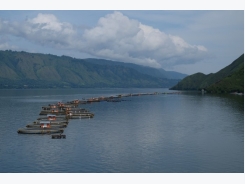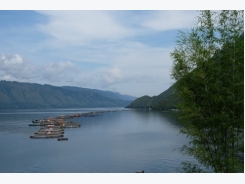How Tilapia is Helping Developing Countries

Here at The Healthy Fish, we often tout the health benefits of Tilapia, but we also want to talk about how farming this fish can contribute to the economic health of developing companies. When farmed sustainably, not only does Tilapia aquaculture have little to no impact on the immediate environment, but it also brings huge benefits to local communities. The product and the practices work hand in hand to ensure developing countries get the help they deserve.
Tilapia’s Superpowers

Tilapia thrives in lake environments. Because it doesn’t migrate like salmon and other fish, it can be raised in nets with lots of room to swim, without using up a ton of environmental space. Tilapia thrive in both fresh and saltwater and when raised in warmer climates, are readily available year-round, making Tilapia a renewable and dependable source of food. If that wasn’t enough already, this miracle fish can also be zero waste. While only 35% of the fish is used for loins and fillets, the rest can go towards creating everything from cosmetics to fuel and even fashion.
The Regal Springs Advantage

Regal Springs’ mission is two-fold: deliver a quality product while helping the local economy. Because they raise their fish with people power and not by using machines, the company needs a lot more personnel to get the job done, and they hire local staff to fill those positions. They boast a staff of over 8,000 people, many of whom are unionized. Operating out of Mexico, Honduras and Indonesia, Regal Springs teaches these individuals how to fish, positively impact their environment and build their communities.
Impact on the Environment

To ensure a quality product, you have to cultivate it in a healthy facility. What better place than fresh lakes around the world? Tilapia farms run by companies like Regal Springs are low impact—from the way their cages are set up to the feed they use. By raising the fish manually in floating cages instead of on land with heavy machinery, companies can avoid creating harmful emissions and using up unnecessary land. To guarantee the fish are being raised in a healthy environment, they have regular water quality checks and scuba divers also ensure that nets aren’t torn so that the process has minimal impact on the local environment.
Impact on the Local Economy

Regal Springs operates a business that brings money to the local economy, but that’s not their sole purpose. They’re also invested in the people they hire and the places they operate out of. For example, a community project of theirs in Costa Rica gives local fish farmers the chance to learn how to build and maintain cages while raising Tilapia in a sustainable manner. In Honduras, Regal Springs donates 10% of their cages to local fishermen who get to keep most of the profits from the fish sold. A percentage of these profits also go toward supporting initiatives in the community. Now how’s that for giving back?
Like any food, Tilapia could easily be farmed in ways that are harmful, but Regal Springs has taken advantage of this fish’s special characteristics to create a business model that is both environmentally and economically sustainable. Sustainably farmed Tilapia and everything that comes with it is just the start of Regal Springs’ ethical endeavours in developing nations. We hope other companies will soon follow suit.
Image Credits: Regal Springs
Related news
Tools

Phối trộn thức ăn chăn nuôi

Pha dung dịch thủy canh

Định mức cho tôm ăn

Phối trộn phân bón NPK

Xác định tỷ lệ tôm sống

Chuyển đổi đơn vị phân bón

Xác định công suất sục khí

Chuyển đổi đơn vị tôm

Tính diện tích nhà kính

Tính thể tích ao




 The 3 Most Common Types of Tilapia
The 3 Most Common Types of Tilapia  Fact or Fiction? 6 Things You Thought You…
Fact or Fiction? 6 Things You Thought You…